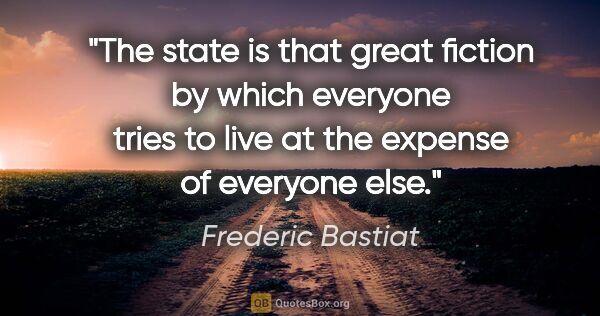Fictional Quotes (page 38)
So, when I write a piece of fiction I select my characters and settings and so on because they have a bearing, at least to me, on the old unanswerable philosophical questions. And as I spin out the action, I’m always very concerned with springing discoveries -- actual philosophical discoveries. But at the same time I’m concerned -- and finally more concerned -- with what the discoveries do to the character who makes them, and to the people around him. It’s that that makes me not really a...
John Gardner
I want to write about people I love, and put them into a fictional world spun out of my own mind, not the world we actually have, because the world we actually have does not meet my standards. Okay, so I should revise my standards; I'm out of step. I should yield to reality. I have never yielded to reality. That's what SF is all about. If you wish to yield to reality, go read Philip Roth; read the New York literary establishment mainstream bestselling writers….This is why I love SF. I love to...
Philip K. Dick
When you read the account of a murder - or, say, a fiction story based on murder - you usually begin with the murder itself. That's all wrong. The murder begins a long time beforehand. A murder is the culmination of a lot of different circumstances, all converging at a given moment at a given point. People are brought into it from different parts of the globe and for unforeseen reasons. [...] The murder itself is the end of the story. It's Zero Hour.”
He paused.
“It's Zero Hour now.
Agatha Christie

There's always moral instruction whether the writer inserts it deliberately or not. The least effective moral instruction in fiction is that which is consciously inserted. Partly because it won't reflect the storyteller's true beliefs, it will only reflect what he BELIEVES he believes, or what he thinks he should believe or what he's been persuaded of. But when you write without deliberately expressing moral teachings, the morals that show up are the ones you actually live by. The beliefs...
Orson Scott Card
The golden rule of fictional prose is that there are no rules - except the ones that each writer sets for him or herself. Repetition and simplicity worked (usually) for Hemingway's artistic purposes. Variation and decoration worked for Nabokov's, especially in Lolita. This novel takes the form of a brilliant piece of special pleading by a man whose attraction to a certain type of pubescent girl, whom he calls a "nymphet", leads him to commit evil deeds. The book aroused controversy on its...
David Lodge

Once, in a cheap science fiction novel, Fat had come across a perfect description of the Black Iron Prison, but set in the far future. So if you superimposed the past (ancient Rome) over the present (California in the twentieth century) and superimposed the far future world of The Android Cried Me a River over that, you got the Empire, as the supra- or trans-temporal constant. Everyone who had ever lived was literally surrounded by the iron walls of the prison; they were all inside it and...
Philip K. Dick
Statisticians report that television is watched over six hours a day in the average American household. I don't know any fiction writers who live in average American households. I suspect Louise Erdrich might. Actually I have never seen an average American household. Except on TV.
David Foster Wallace
